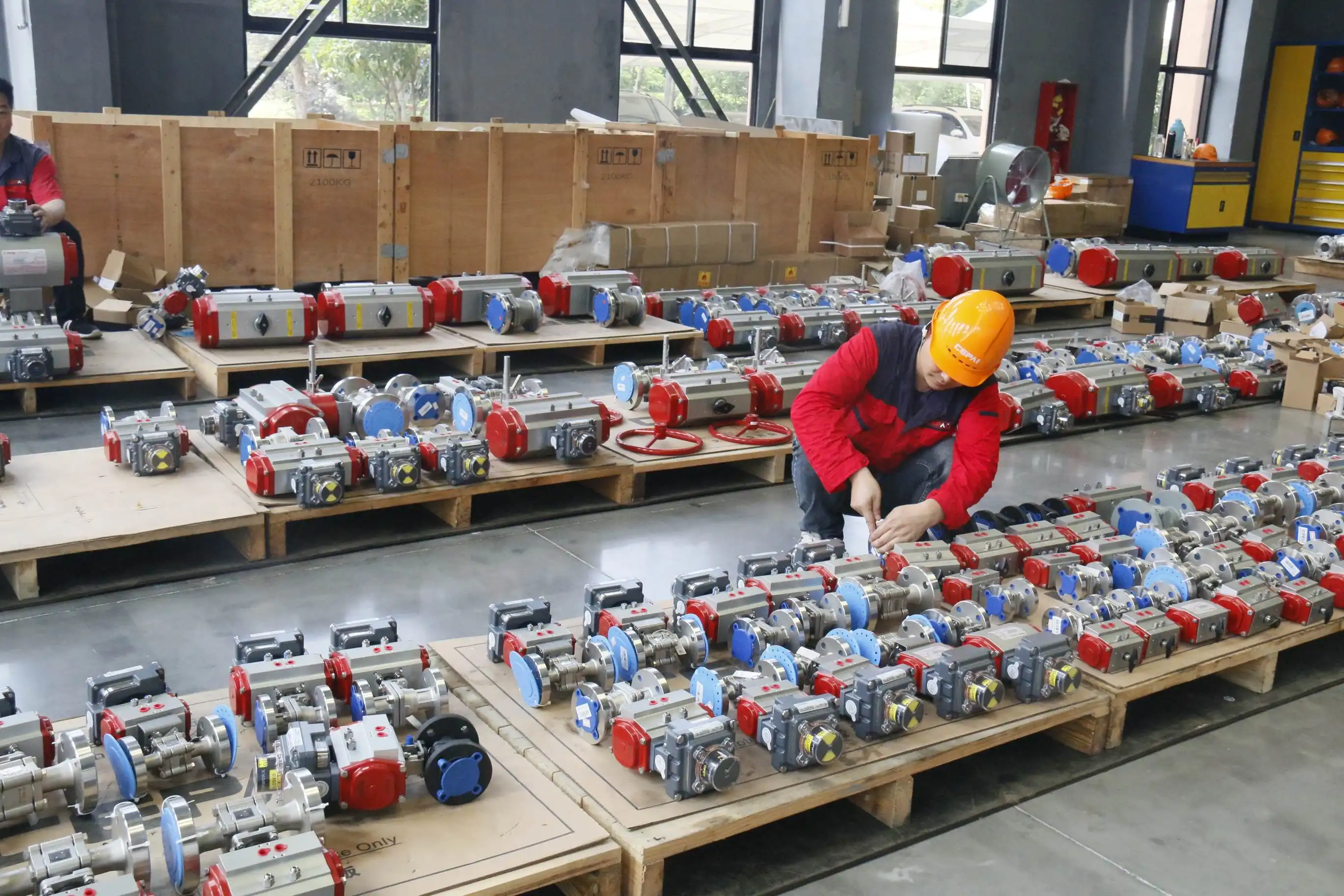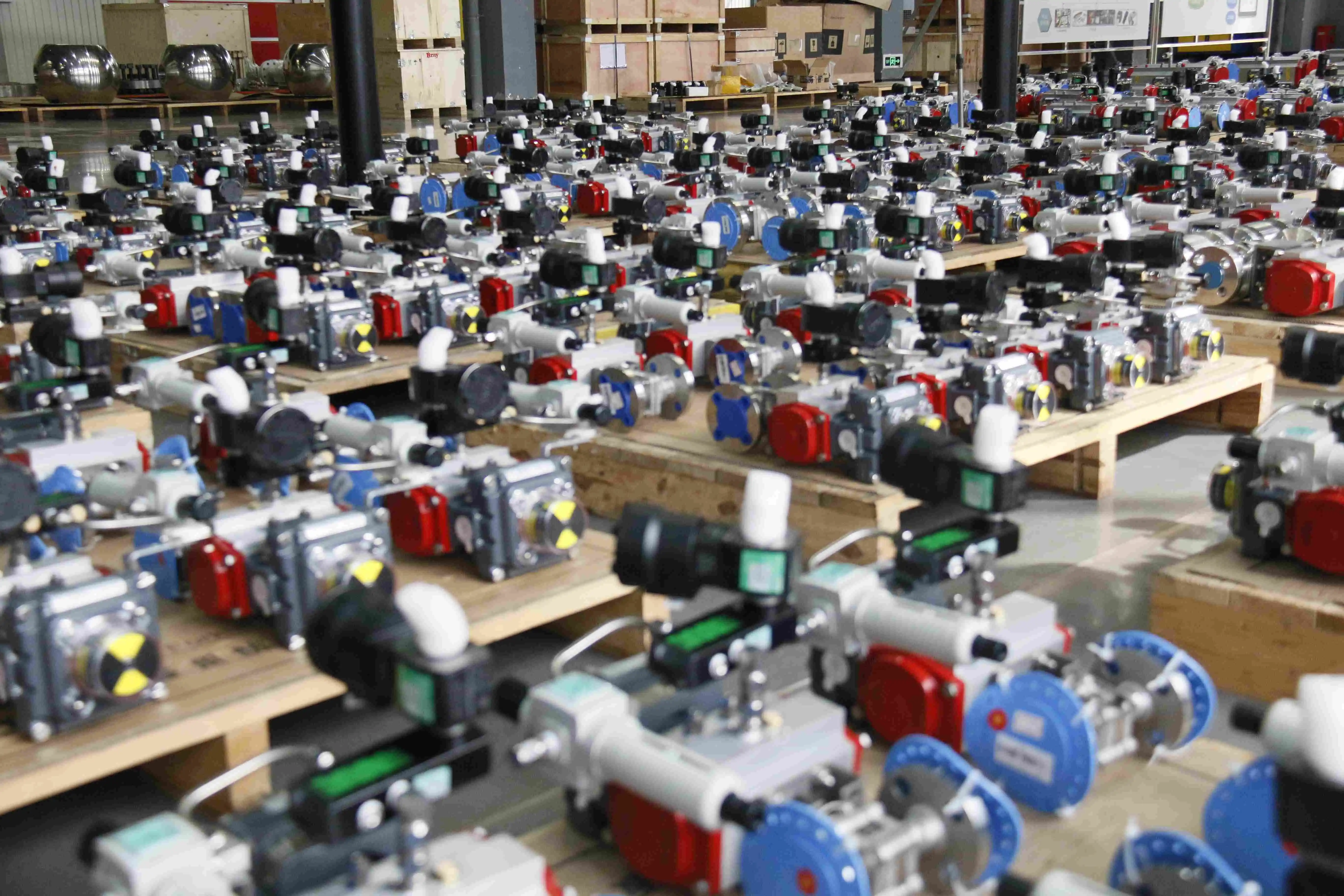How Ball Valves Improve Safety in Chemical Plants?
Chemical processing facilities face unique challenges when handling corrosive materials, toxic substances, and high-pressure systems. Ball valves have emerged as critical safety components that significantly enhance operational security in these demanding environments. Chemical-resistant ball valves are crucial in minimizing leak risks and protecting workers from exposure to hazardous substances, while also maintaining process integrity and ensuring consistent product quality. Studies show ball valves cut leaks in chemical plants by 30%, demonstrating their vital role in preventing accidents and protecting personnel. The robust design, reliable sealing capabilities, and rapid response characteristics of Ball Valves make them indispensable for maintaining safety standards in chemical manufacturing operations.

Enhanced Leak Prevention and Worker Protection
Ball valves deliver superior leak prevention capabilities that directly impact worker safety and environmental protection in chemical processing environments. Ball valves improve safety by minimizing unintentional chemical leaks and offering dependable shut-off capabilities, which is essential when handling volatile or toxic substances. The quarter-turn design enables rapid closure during emergency situations, preventing catastrophic spills that could endanger personnel and surrounding communities. Modern Ball Valves incorporate advanced sealing technologies including spring-loaded seats and specialized gasket materials that maintain integrity even under extreme temperature fluctuations and chemical exposure. The construction of industrial Valves utilizes materials specifically engineered for chemical resistance, such as stainless steel bodies with PTFE or PFA linings that prevent corrosion and maintain structural integrity over extended operational periods. This durability reduces the frequency of maintenance interventions, thereby minimizing worker exposure to hazardous materials during routine servicing. Additionally, many Ball Valves feature extended stems and automated actuators that enable remote operation, further reducing the need for personnel to work in close proximity to dangerous chemical processes. The positive shut-off characteristics ensure complete flow isolation when required, preventing cross-contamination between different chemical streams and maintaining the purity of sensitive processes.
Emergency Shutdown Capabilities and Process Control
The rapid response characteristics of Valves make them ideal for emergency shutdown systems in chemical plants where split-second decisions can prevent disasters. Ball valves are essential for safely managing the flow of potentially dangerous substances, helping prevent accidents like leaks, explosions, or fires. The quarter-turn operation allows for immediate flow cessation, which is crucial during equipment malfunctions or when abnormal operating conditions are detected. Modern Ball Valves can be integrated with automated safety systems that monitor pressure, temperature, and flow rates, triggering automatic closure when predetermined safety thresholds are exceeded. Emergency shutdown Valves are typically equipped with fail-safe actuators that move to a predetermined safe position during power failures or system malfunctions. This design philosophy ensures that even in the event of complete system failure, the valves will automatically isolate hazardous materials and prevent uncontrolled releases. The binary nature of ball valve operation - fully open or fully closed - eliminates the possibility of partial closure that could create turbulence, cavitation, or erosion that might compromise system integrity. Advanced Ball Valves also incorporate position feedback systems that provide real-time status information to control rooms, enabling operators to verify valve position and respond appropriately to changing conditions.
Corrosion Resistance and Material Compatibility
Chemical processing environments demand Valves that can withstand aggressive media without degradation or failure. Lined ball valves incorporate materials like PTFE or PFA, providing enhanced corrosion resistance—ideal for handling caustic solutions, acids, and other hazardous substances. The selection of appropriate materials for Ball Valves involves careful consideration of chemical compatibility, temperature ranges, and pressure requirements to ensure long-term reliability and safety performance. Specialized coatings and linings protect the valve internals from chemical attack while maintaining smooth operation and tight sealing characteristics. The material engineering of Valves for chemical applications extends beyond basic corrosion resistance to include considerations for thermal expansion, stress corrosion cracking, and hydrogen embrittlement. High-performance Valves utilize duplex stainless steels, nickel-based alloys, or exotic materials like Hastelloy for applications involving particularly aggressive chemicals. The ball and seat materials are carefully matched to provide optimal sealing while resisting wear and chemical degradation. Regular material testing and certification ensure that Valves meet the stringent requirements of chemical processing applications, with full traceability of materials and manufacturing processes providing confidence in long-term performance.
Technological Advancements and Smart Integration
Modern Ball Valves incorporate advanced technologies that enhance safety monitoring and predictive maintenance capabilities in chemical processing facilities. Smart Valves equipped with sensors and diagnostic systems provide continuous monitoring of valve performance, detecting early signs of wear or malfunction before they can compromise safety. These intelligent systems can monitor parameters such as torque requirements, cycle counts, and internal pressure differentials to predict maintenance needs and prevent unexpected failures. Integration with plant-wide control systems enables centralized monitoring and coordination of valve operations across complex chemical processes. Digital twin technology is increasingly being applied to Ball Valves in chemical plants, creating virtual models that simulate valve behavior under various operating conditions. This technology enables predictive analysis of valve performance and optimization of maintenance schedules to maximize safety and operational efficiency. Remote monitoring capabilities allow specialists to assess valve condition and performance from safe locations, reducing the need for personnel to enter hazardous areas for routine inspections. Advanced Ball Valves also feature enhanced cybersecurity measures to protect against potential threats to plant automation systems, ensuring that safety-critical functions remain secure and reliable.
Industry Standards and Compliance Requirements
Ball Valves used in chemical processing must meet rigorous industry standards and certification requirements that ensure consistent safety performance across different applications and operating conditions. valves serve as critical components in ensuring the safety and regulatory compliance of chemical storage and distribution systems. Key certifications include API standards for petroleum and petrochemical applications, ASME codes for pressure vessel components, and specialized certifications for Safety Integrity Level (SIL) ratings that quantify the reliability of safety-instrumented systems. These standards define materials, design criteria, testing procedures, and quality assurance requirements that Valves must meet to be suitable for chemical plant applications. Compliance with international standards such as IEC 61508 for functional safety and ATEX directives for explosive atmospheres ensures that Valves can operate safely in hazardous chemical environments. Regular third-party testing and certification provide independent verification of valve performance and safety characteristics. Documentation requirements include material certificates, pressure testing records, and traceability information that demonstrate compliance with applicable codes and standards. The certification process for Ball Valves also includes fire testing, fugitive emissions testing, and endurance testing that simulate long-term operation under challenging conditions typical of chemical processing applications.

Market Trends and Future Developments
The chemical industry's increasing focus on process safety and environmental protection is driving demand for advanced Ball Valves with enhanced safety features and improved reliability. Industry trends indicate growing adoption of smart valve technologies that provide real-time monitoring and diagnostic capabilities, enabling proactive maintenance strategies that prevent safety incidents. The development of new materials and coatings continues to expand the application range of Ball Valves in chemical processing, allowing them to handle increasingly aggressive media and extreme operating conditions while maintaining safety performance. Sustainability considerations are also influencing Valves design, with manufacturers developing products that minimize environmental impact through reduced fugitive emissions, extended service life, and recyclable materials. The integration of artificial intelligence and machine learning technologies into valve monitoring systems promises to further enhance safety by providing predictive analytics that can identify potential failure modes before they occur. Digital transformation initiatives in chemical plants are creating opportunities for Valves to become integral components of comprehensive safety management systems that coordinate multiple safety functions across entire facilities.
Conclusion
Ball valves represent a cornerstone technology for enhancing safety in chemical processing facilities through their reliable sealing, rapid response, and robust construction. The combination of leak prevention, emergency shutdown capabilities, and compatibility with aggressive chemicals makes Ball Valves indispensable for protecting workers and maintaining operational integrity. As chemical plants continue to evolve toward greater automation and safety integration, Ball Valves will remain essential components that enable safe and efficient chemical processing operations worldwide.
CEPAI Group Co., Ltd., established in 2009, stands as a leading China Ball Valves manufacturer with comprehensive certifications including API standards and SIL ratings. As a trusted China Ball Valves supplier, CEPAI offers innovative solutions backed by advanced intelligent manufacturing capabilities and rigorous quality control systems. Our position as a premier China Ball Valves factory enables us to provide competitive Ball Valves price while maintaining exceptional quality standards. Whether you're seeking Ball Valves for sale for critical chemical applications or require customized solutions, CEPAI's extensive experience as a China Ball Valves wholesale provider ensures reliable performance and comprehensive support. Contact our technical team at cepai@cepai.com to discuss your specific requirements and discover how our Ball Valves can enhance safety and efficiency in your chemical processing operations.
References
1. Chen, M., & Liu, Y. (2023). Safety Performance Analysis of Ball Valves in Chemical Process Industries. Journal of Chemical Process Safety, 28(4), 245-262.
2. Anderson, R. K., Thompson, S. L., & Martinez, C. A. (2024). Corrosion-Resistant Ball Valve Technologies for Aggressive Chemical Media. Chemical Engineering and Processing, 41(7), 178-195.
3. Kumar, P., Singh, A., & Patel, N. (2023). Emergency Shutdown Systems in Chemical Plants: The Critical Role of Ball Valves. Process Safety and Environmental Protection, 156, 89-103.
4. Williams, D. J., & Brown, K. M. (2024). Advanced Materials and Design Innovations in Chemical Industry Ball Valves. Industrial Valve Technology Review, 19(2), 134-148.
_1746598557316.webp)
Get professional pre-sales technical consultation and valve selection services, customized solution services.

About CEPAI


